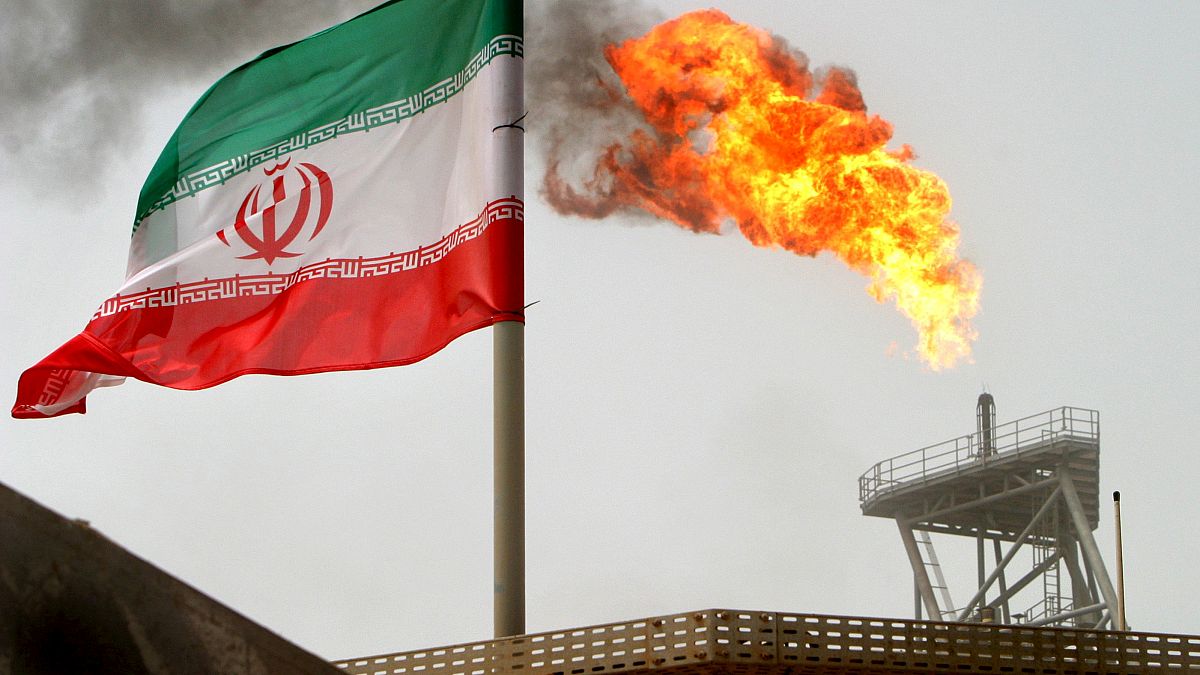Several well-known European companies have said they are pulling out of Iran or scaling back investment because of the Trump administration’s renewed sanctions.
Several large European companies are among those impacted by renewed American sanctions on Iran, following Donald Trump’s announcement that the US was pulling out of the international deal to contain Tehran’s nuclear programme.
The first batch of the so-called “snapback” sanctions are due to be re-imposed on Tuesday, with the next wave in November. The Trump administration has threatened to blacklist companies doing business with Iran.
The European Union has vowed to keep the nuclear deal alive and protect European businesses. However, the financial reality for many firms is that they feel obliged to yield to what EU foreign policy chief Federica Mogherini has described as the “weight of the US”.
On Monday Germany vowed to continue to offer export and investment guarantees for companies doing business with Iran. The economy ministry added that it remained in dialogue with the US on exemptions for German companies from sanctions.
We take a look at the main sectors of the economy to be affected.
Carmakers
French manufacturers PSA (Citroen and Peugeot) holds around a third share of the market in Iran. PSA said in early June that it was suspending its investment in the country, minimising the damage by saying that its business there was worth less than one percent of its turnover. Renault has said it wants to retain a presence in Iran, but without putting the company’s interests in danger.
German carmakers are also expected to be affected. Daimler has agreements to provide Mercedes-Benz trucks. Last year Volkswagen announced plans to start selling cars in Iran again after years of absence from the market – but its strong presence in the United States may force a rethink.
Swedish truckmaker Scania has warned that its entire sales into Iran could be lost. The firm – which is owned by Volkswagen – has cancelled all orders that could not be delivered by mid-August. Its presence in Iran is worth about five percent of its global orders, while the US accounted for 13 percent in 2017.
Industry
German giant Siemens signed deals in 2016 relating to natural gas. The industrial manufacturer’s chief executive said in May that it couldn’t do any new business in Iran. The company last week said it intended to respect export regulations, including US sanctions.
Total said in May that it would abandon an agreement to develop a gas field in Iran. The French oil company had joined up with the Chinese group CNPC; however, its investment is thought to be relatively small.
French industrial group Air Liquide says it has decided to cease all commercial activity in Iran, while making clear it has “no investments” in the country.
Few major British companies operate in Iran but several firms are understood to have contracts in various sectors of the economy, from infrastructure to healthcare.
Shipping
The Danish shipping conglomerate A.P. Moller-Maersk said in May that it would stop working in Iran, to abide by the US sanctions. The announcement came as the group posted losses attributed to foreign exchange movements and rising oil prices.
“With the sanctions the Americans are to impose, you can’t do business in Iran if you also have business in the US, and we have that on a large scale,” said Chief Executive Soren Skou. “I’m certain we’re also going to shut down in Iran.”
The French shipping group CMA CGM announced in July that it was ceasing its Iran operations.
“Due to the Trump administration, we have decided to end our service for Iran. Our Chinese competitors are hesitating a little, so maybe they have a different relationship with Trump, but we apply the rules,” Chief Executive Rodolphe Saade said.
Italy’s naval construction firm Fincantieri signed several agreements with Iran in 2016, and announced a 12.5 percent rise in exports to the country last year.
Aircraft
Airbus has announced contracts with Iranian airlines for 100 planes worth a reported $10 billion. Only three are reported to have been delivered. However, the loss of the Iranian market is not expected to have a major impact on the European planemaker, which has orders for over 7,000 aircraft in total.
ATR, the aircraft manufacturer based in Toulouse managed to supply five new planes to the airline Iran Air just before the US sanctions were due to come into force. However, only 13 of the total order for 20 aircraft have been delivered, and the arrival of the remainder is in serious doubt. The group also does business in the United States and is thus subject to the sanctions.
Rail
Italy’s state fail company Ferrovie dello Stato signed a deal in 2017 to build two new high-speed lines in Iran, including one between Qom and Arak in the north.
Swiss firm Stadler Rail said in May that it would be ditching projects in Iran.
Siemens – which says it will respect US sanctions - signed a deal in 2016 to upgrade Iran’s railway network, providing components for 50 diesel-electric locomotives.
Tourism
British Airways and Lufthansa, which had restarted direct flights to Tehran, will probably have to stop them if they want to continue freely operating transatlantic flights.
Other groups which could be impacted include the French chain AccorHotels, which opened two hotels at Tehran airport in 2015 – and the Spanish firm Melia Hotels International, which signed a deal in 2016 to manage a five-star hotel.
Pharmaceuticals
The French group Sanofi says it is continuing its activities in Iran in accordance with international rules, adding that it’s too early to comment on the potential impact of sanctions on its operations.
Banks
German banks Helaba and the Frankfurt-based DZ Bank have decided to pull out of Iran following the announcement of US sanctions.
